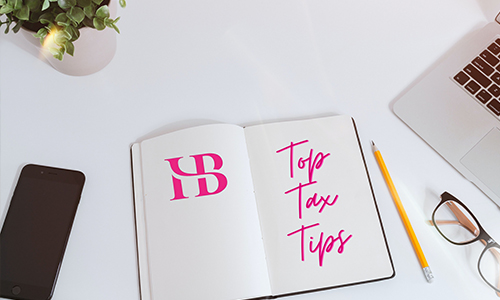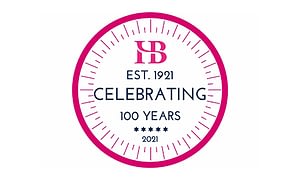With the end of the 2021/22 tax year on 5th April just around the corner – you still have time to take action. Check out our top tax tips and make your money work as hard as possible for you. Plan ahead to minimise your tax bill. Your aim: a financial plan that is as tax-efficient as possible
Top Tax Tips to consider pre year end
- Utilising your allowances
- Saving for your children
- Paying dividends
- Topping up your pension
- Gifting to charity
- Setting up time to pay arrangements to avoid late payment penalties
- Consider utilising the working from home tax allowance (if you have worked from home for even one day)
It is worth considering our top tax tips so that your financial plan is as tax efficient as possible. A great start is to utilise the allowances available to you – this is where we help our clients.

Do you know your Personal Allowance (PA)?
Making the most of the allowances available to you is key.
Each individual is entitled to their own personal allowance (PA), which for 2021/22 is set at £12,570.
Make the best use of the PA as each spouse or civil partner is taxed separately
- The starting Rate for savings
- The basic rate tax band
- The Savings Allowance
- The Dividend Allowance
The aim is to distribute income within your family to take maximum advantage of these.
Are you utilising the Marriage Allowance?
Part of your PA can be transferred between spouses and civil partners. The Marriage Allowance of £1,260 for 2021/22 can be transferred, but only where neither spouse/civil partner pays tax at the higher rate.
Do you make use of Children’s allowances?
One of our top tax tips is to remember that for tax purposes, children are treated independently. They have their own PA, and their own savings and basic rate tax band. They also have their own capital gains tax (CGT) annual exemption. In some cases, a tax saving can be made by transferring income-producing assets to a child. However, when shifting income from a parent to a child who is a minor, any income in excess of £100 will still be taxed on the parent. It is therefore not always possible to use a child’s PA by means of a parent transferring income-producing assets – this is where your tax adviser can help.
The Junior Tax-free savings opportunities explained
A Junior ISA account offers tax-free savings opportunities for children – the Junior ISA is available for UK resident children under the age of 18. In 2021/22, Junior ISAs allow parents, other family members or friends to invest up to £9,000 yearly in a tax-free fund. There are no government contributions and access to the funds is not permitted until the child reaches the age of 18.
Do you know about the High Income Child Benefit Charge?
If you receive Child Benefit, it is important to remember that taxpayers with adjusted net income in excess of £50,000 during the tax year are liable to the High Income Child Benefit Charge. If both partners have income above this level, the charge applies to the partner with the higher income.
It is important to consider appropriate strategies to keep each parent’s income below £50,000. If two parents have income of £50,000, for example, the household can receive full Child Benefit. But if one parent receives all the income, and the other none, all Child Benefit is lost.
Top Tax Tips for family companies
Our top tax tip here is to make of the PA for all family members. Salaries paid at a level realistically reflecting the duties carried out, and made for the purposes of the business, will also attract a corporation tax deduction. Payment should be formally recorded, as should hours worked.
The PA is reduced where total income is over £100,000, by £1 for every £2 of income above this limit. Careful thought should therefore be given to deferring such income as you have discretion over – bonus payments and dividends potentially falling into this category. Holding such payments back until the new tax year may produce a more favourable outcome.
Consider utilising dividends
Dividends are payments made to “limited company” shareholders from the profits of a company after Corporation Tax has been accounted for. If your business is a limited company, this can often be the most tax-efficient way of extracting money from your company.
Most family companies will pay directors a minimal salary – preserving State Pension entitlement, but below the threshold at which national insurance contributions (NICs) are due – with the balance extracted as dividends. The NIC saving here can be considerable.
The tax on dividends has remained the same in 2021/22. Tax is paid on dividends at;
- 7.5% for basic rate taxpayers
- 32.5% for higher rate taxpayers
- 38.1% for additional rate taxpayers.
Taken in conjunction with the Dividend Allowance of £2,000 for 2021/22, this may prove to be very favourable. However, company profits taken as dividends remain chargeable to corporation tax: 19% in 2021/22.
Did you know that the timing of dividend payments to shareholders is important?
Time payments accurately: Another of our top tax tips! The timing of dividend payments to shareholders is important, and again the question is whether to make the payment before or after the end of the tax year. A dividend payment in excess of the Dividend Allowance, delayed until after the end of the tax year, may give the shareholder an extra year to pay any further tax due. The deferral of tax liabilities on the shareholder depends on a number of factors.
Please contact us for detailed advice.Timing is important with directors’ bonuses, too. Should a bonus be timed before or after the end of the tax year? The date of payment will affect when tax is due, and possibly the rate at which it is payable.
Directors – Should you pay yourself a bonus or a dividend?
Careful judgment may be required when deciding whether a bonus payment or dividend is more tax-efficient. Bonuses are liable to employee and employer NICs. For Scottish taxpayers, a further point to consider is that bonuses are now taxed at Scottish rates of income tax as employment income, but dividends are taxed at UK rates as savings income.
Top up your pension
Normally, you and your employer can pay a maximum of £40,000 into your pension pot over a tax year before it becomes subject to tax. This is known as your personal allowance. However, you can maximise your pension pot each year by paying as much into your pension as is practical whilst keeping under the £40,000 limit. Remember that you can carry forward any unused allowance for up to three years.
Always take advice before you access your pension early as there may be serious tax implications and bear in mind that you may be liable for tax on any benefits if your total pension savings exceed the lifetime allowance of £1,073,100 in the tax year 2021/22 – this has been frozen at this level until the 2025/26 tax year.
Top tax tip – gifting to charity
If you are a higher rate taxpayer (40%) and you donate £100 to charity, your basic rate band is extended by £125. The charity claims the 20% tax from HMRC as usual; however, you also benefit from the donation due to the fact that £125 of income that would have been taxed at 40% is now taxable at 20%. The result, you receive additional tax relief of 20% by paying less higher rate to HMRC.
If you are an additional rate taxpayer (45%), your income tax relief increases to 25%.
Carrying back Gift Aid donations
With Gift Aid you have the choice to “carry back” any Gift Aid donations you make in the current tax year (up to the date you file your return) to the previous tax year to claim tax relief. Consider carrying back if you either:
- want tax relief sooner; or
- will not pay higher rate tax in the current year, but you did in the previous year
Get in touch with your tax adviser or book an initial appointment with Amy to discuss your options.
Consider seting up a time to pay arrangement with HMRC
The 5% late payment penalty for self-assessment income tax unpaid on 1 April 2022 can be avoided by setting up a time to pay arrangement by that date.
How to claim the Working from Home Tax Allowance
Even if you have worked from home for only one day make sure you are taking advantage of the working from home tax allowance – see blog below
As accountants, we can provide advice regarding a range of tax-efficient planning strategies to implement ahead of the 5 April year end.
Book a call in BEFORE 5 April to get the best advice on the best ways of maximising your annual allowance before the tax year end.
Feel free to share our top tax tips with your business associates – to make this easier, we have added share icons at the bottom of the page.
Contact us here for more information or call 01992 444466.

Read our Latest Blogs Below
- Can Directors borrow money from their business?
- HB Accountants’ History Chapter 5: Clients, Cricket Matches and Marketing!
- HMRC has waived late filing and late payment penalties for Self Assessment taxpayers for one month
- Just announced: Additional financial support will be available for businesses who have been impacted by the Omicron variant
- How networking will boost your growth
The information contained above is for general guidance purposes only. Whilst every effort has been made to ensure the contents are accurate, please note that each individual has different circumstances and it is essential that you seek appropriate professional advice before you act on any of the information contained herein. HB Accountants can accept no liability for any errors or omission or for any person acting on or refraining from acting on the information provided in the above
Feel free to follow us on Instagram to get to get a flavour of who we are @HBAHoddesdon


Pingback: The Kickstart Scheme Delivery Suprising Bonus for HB Accountants - HB Accountants
Pingback: What does the start of the new Tax Year mean for you? - HB Accountants